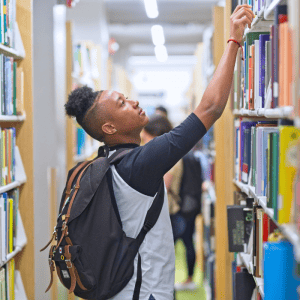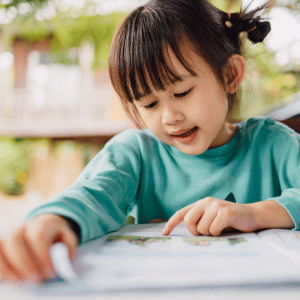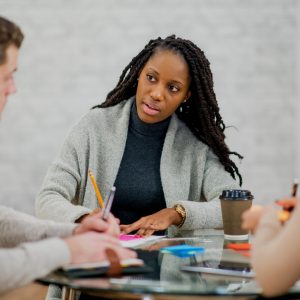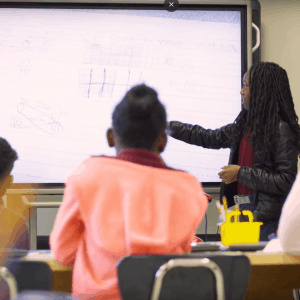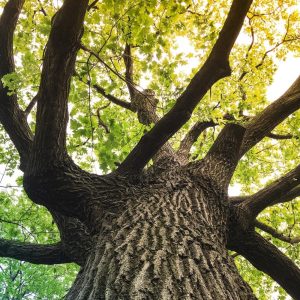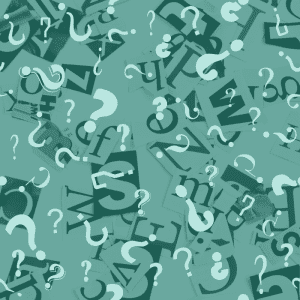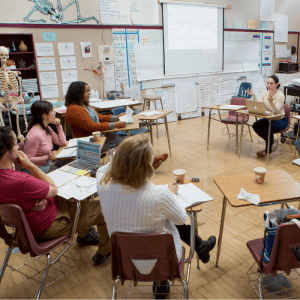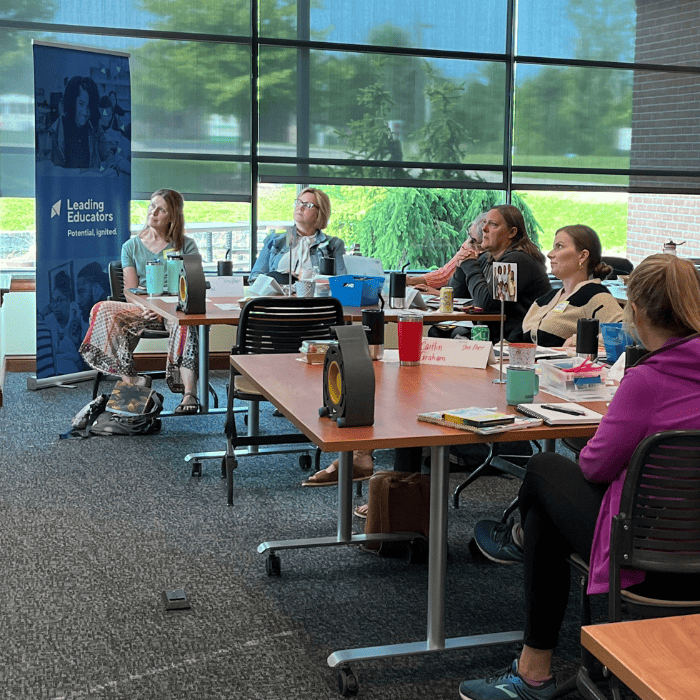
Rethinking Secondary Literacy Professional Learning
04/02/2024

Part 3: Bringing the Science of Reading to Life in Secondary Literacy Professional Learning
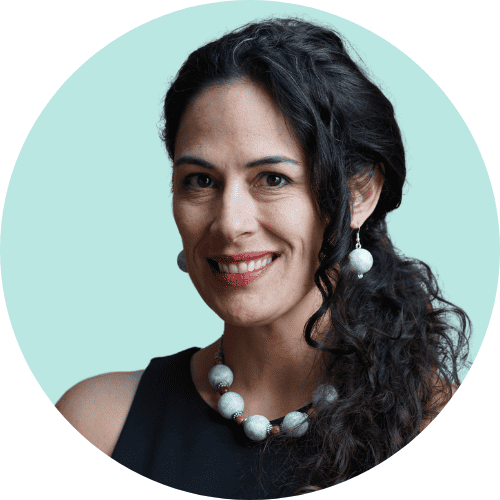
This blog is the third part in a series on giving secondary students access to the science of reading. Read part one and part two.
When teachers learn, students learn. That’s why Leading Educators is exploring how to bring the science of reading into practice with literacy professional learning.
This year, we are experimenting with weaving both strands of Scarborough’s Rope (word recognition + language comprehension) into ongoing support for secondary educators in our Teaching for Equity Fellowship in Greater Grand Rapids, Michigan.
About the Approach
The “Simple View of Reading”, theorized by Philip Gough and William Tunmer, is a formula that multiplies the two strands of Scarborough’s Rope to produce skilled reading.
If either of those factors is zero, guess what? There is no skilled reading. Anything less than 100% in either component will greatly reduce the ability to read skillfully. (1 x .2 = .2)
So, instead of assuming students have already mastered word recognition (as most professional development in secondary literacy does), we’re starting with relearning what we thought we knew about reading.
We explore the catastrophic impact of strategies like whole language, balanced literacy, readers/writers workshop, and leveled readers, and the science behind why they don’t work. Some secondary teachers, like me, were never trained to teach students to read, and we assumed the way we learned to read was how everyone else did, too. Other teachers have spent a large part of their careers trying to teach students to read with these ineffective programs.
What We’ve Learned
None of us in the Fellowship knew so many barriers could be removed by teaching students the “code” based on the science or reading. A lot of us have assumed older students who struggled with reading had an undiagnosed learning disability or just “didn’t like reading.”
We encourage our cohort’s teachers, literacy coaches, and school and district leaders to begin by diagnosing students’ foundational reading skills to ensure it isn’t just our biases making assumptions about which kids “can’t read.” (More affordable and appropriate tools for diagnosing decoding gaps in older students are needed!) We then introduce our Fellows to specific strategies that are age-appropriate and content-area aligned, with resources to deepen their learning.
At the same time, we bring Fellows together in whole-group sessions to dive deep into the language comprehension strand. By anchoring the shifts in ELA in science and history content, we believe we can close the knowledge gap for older students. This all wraps around a central focus on antiracist educator mindsets and practices to create more inclusive and liberatory classrooms. While explicit learning on equity and cultural responsiveness is required, we don’t believe you can separate that from learning about academic best practices.
Finally, we know new knowledge doesn’t translate to skill without support. So, we provide school-site coaching and collaboration. We facilitate learning labs where peers observe each other’s lessons and offer thought-partnering. We analyze classroom artifacts like formative assessments, lesson and unit plans, and student work to apply the learning. From this work, Fellows are able to refine their practice and maximize their impact over time.
It’s a new journey.
For the educators who never got the training or support to teach science-based literacy.
For the school leaders who find their attention and energy drawn to a variety of issues.
For us at Leading Educators, who are determined to stay on top of reading research, market trends, and the new evidence emerging on older students who require targeted support.
It’s a big task, and it won’t be solved within a data cycle or during the course of one Fellowship. There might be no quick fix that guarantees MAP scores will transform by the end of a school year. There are many high-quality materials available for language comprehension, but few educational publishers are creating foundational skills materials that embed middle and high school core content. There are no schools that will get it right on the first attempt – likely not even after several attempts. To make real progress, our teachers need the time, grace, and motivation to try and fail and try again, just like our students do.
Our hope is that we ignite a spark in the secondary students in front of us right now. If teachers believe that what they are doing will make a difference, if they have the support to build their skills and knowledge, and if they have access to better resources, coaching, and peer collaboration, we can bring out the genius in our brilliant and resilient emerging readers.
Get Support
Are you opening new pathways to greater literacy in your context? We offer contextualized partnerships for school systems, public charter networks, and states that bridge strategic planning, professional learning design, and coaching. Get started.



